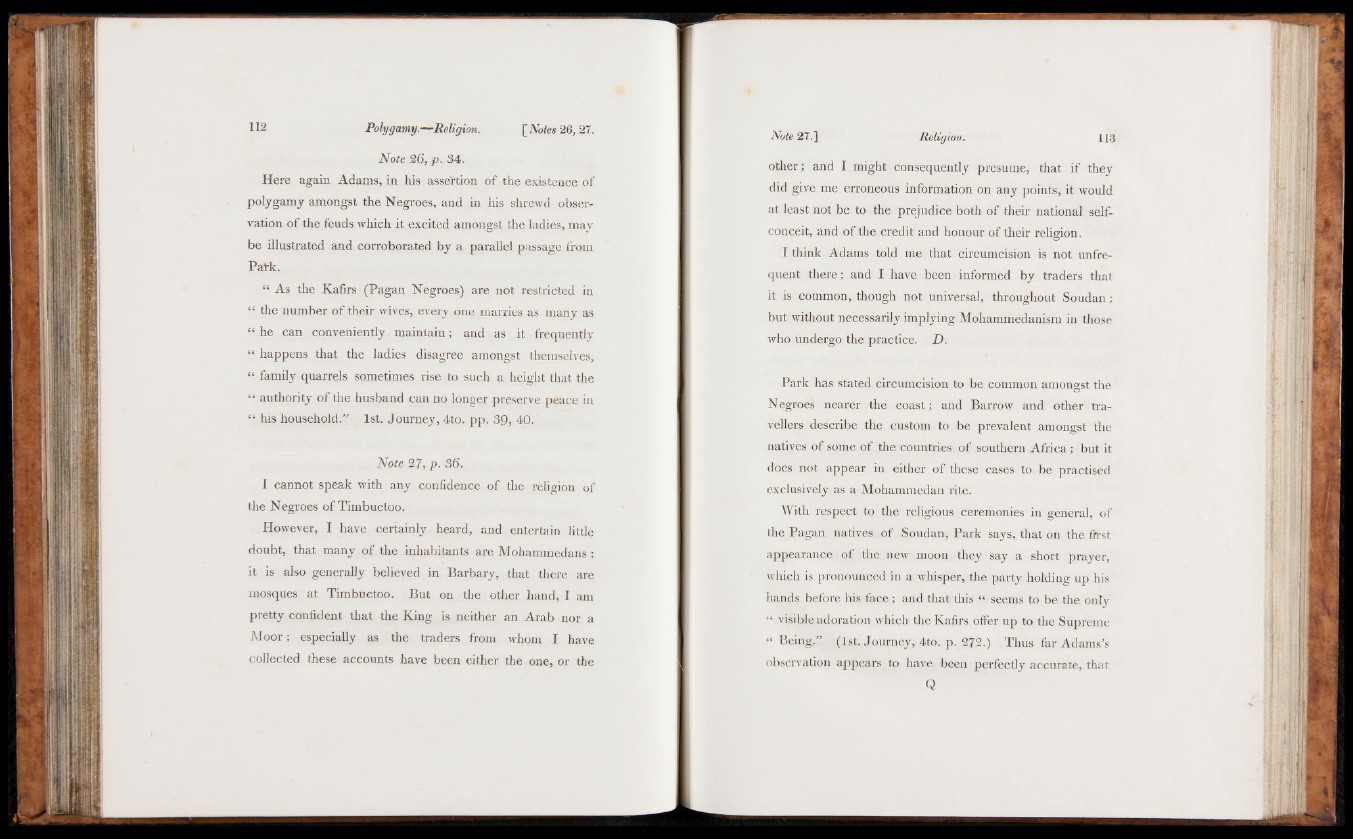
112 Polygamy.—Religion. £ Notes 26, 27.
Note 26, p. 34.
Here again Adams, in his assertion of the existence of
polygamy amongst the Negroes, and in his shrewd obseiv
vation of the feuds which it excited amongst the ladies, may
be illustrated and corroborated by a parallel passage from
Path.
“ As the Kafirs (Pagan Negroes) are not restricted in
“ the number of their wives, every one marries as many as
jjj he can conveniently maintain; and as it frequently
“ happens that the ladies disagree amongst themselves,
“ family quarrels sometimes rise to such a height that the
“ authority of the husband can no longer preserve peace in
“ his household." 1st. Journey, 4to. pp. 39, 40.
Note 27, p. 36.
I cannot speak with any confidence of the religion of
the Negroes of Timbuctoo.
However, I have certainly heard, and entertain little
doubt, that many of the inhabitants are Mohammedans :
it is also generally believed in Barbary, that there are
mosques at Timbuctoo. But on the other hand, I am
pretty confident that the King is neither an Arab nor a
Moor; especially as the traders from whom I have
collected these accounts have been either the one, or the
Note 27.] Religion. 113
other; and I might consequently presume, that if they
did give me erroneous information on any points, it would
at least not be to the prejudice both of their national self-
conceit, and of the credit and honour of their religion.
I think Adams told me that circumcision is not unfrequent
there; and I have been informed by traders that
it is common, though not universal, throughout Soudan;
but without necessarily implying Mohammedanism in those
who undergo the practice. D.
Park has stated circumcision to be common amongst the
Negroes nearer the coast; and Barrow and other travellers
describe the custom to be prevalent amongst the
natives of some of the countries of southern Africa; but it
does not appear in either of these cases to be practised
exclusively as a Mohammedan rite.
With respect to the religious ceremonies in general, of
the Pagan natives of Soudan, Park says, that on the first
appearance of the new moon they say a short prayer,
which is pronounced in a whisper, the party holding up his
hands before his face; and that this “ seems to be the only
“ visible adoration which the Kafirs offer up to the Supreme
“ Being.” (1st. Journey, 4to. p. 272.) Thus far Adams’s
observation appears to have been perfectly accurate, that
Q